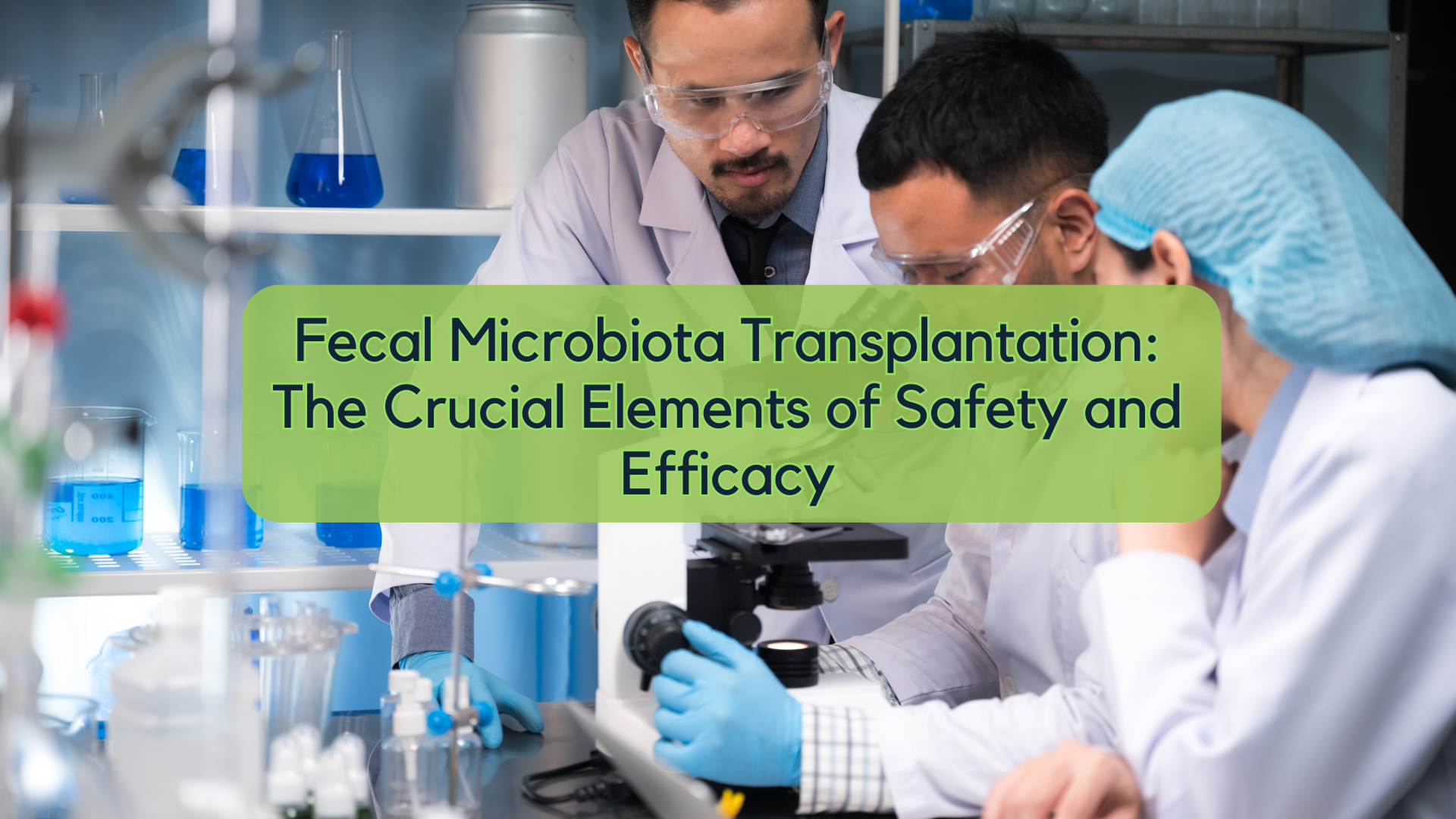Our microbiome is as unique as a fingerprint, shaped by genetics and environmental influences (such as diet, exercise, medications 1), and fluctuates throughout one’s lifetime 2–6. Microbial colonization of the human gut begins during birth (possibly in utero), comprised of a complex community of microorganisms, including trillions of bacteria, quadrillions of viruses, fungi, parasites, and archaea, coming together to create one’s gut microbiome 4,6–9.
The microbiome is vital for many functions within the human body, playing a role in the protection against pathogens, production of essential vitamins, metabolism, maintaining intestinal homeostasis, influencing gut-brain communication and modulation of the immune system 1,7–9.
What comprises a healthy gut microbiome has been hard to define. Still, the general consensus is that having a stable and diverse gut community is related to a healthy intestinal state 5,6,10. In a healthy individual, the gut microbiome is in a state of eubiosis, consisting of a diverse mixture of beneficial microbes creating a balanced relationship, which is beneficial for human health 11–15.
In contrast to gut eubiosis, any changes in the gut microbiome composition associated with adverse functional outcomes are known as gut dysbiosis 6,7,16,17. Gut dysbiosis can trigger infections and has been associated with diseases like inflammatory bowel disease, irritable bowel syndrome, neuropsychiatric-related diseases, metabolic conditions, cardiovascular diseases, immune-related diseases or even cancer 1,7,12,17–21. The list of diseases characterized by changes in the composition and functionality of the gut microbiota continues to grow with scientific advancements 22. What defines gut dysbiosis varies between different disorders but is commonly characterized by low microbial diversity and environmental factors such as diet, lifestyle, age and antibiotics 1,2,6,7,9,23–25. Specifically, antibiotics have been shown to affect both the gut bacterial community's overall size and the community's composition 7,26.
Overall, research is still needed to understand whether changes in the gut microbiome are cause, consequence or unrelated to disease, but restoring the gut microbiome to a healthy state with fecal microbiota transplant (FMT) is a therapeutic approach with promise 22.
At Novel Biome, we're passionate about the importance of the gut microbiome and the transformative potential of Fecal Microbiota Transplantation (FMT) treatment to restore health. As an FMT contract manufacturer, we leverage our years of experience in FMT to manufacture high-quality FMT products utilizing our highly-screened donors and stringent manufacturing standards. If you are interested in learning more about our FMT products and manufacturing capabilities, please contact us HERE or to register as a clinical partner to order FMT products, click HERE.
References: 1. Gomaa, E. Z. 2020, 2. Hall, A. B. et al. 2017, 3. Odamaki, T. et al. 2016 4.Perez-Muñoz, M. et al. 2017, 5. The Human Microbiome Project Consortium. 2012, 6. Wilson, B. C., et al. 2019, 7. Choi, H. H. & Cho, Y.-S. 2016, 8. Hooper, L. V., et al. 2012, 9. Sommer, F. & Bäckhed, F. 2013, 10. Lloyd-Price, J., et al. 2016, 11. Bresalier, R. S. & Chapkin, R. S. 2020, 12. Ser, H.-L., et al. 2021, 13. Thaiss, C. A., et al. 2016, 14. Thursby, E. & Juge, N. 2017, 15. Yang, I. et al. 2016, 16. Petersen, C. & Round, J. L. 2014, 17. Xu, M.-Q. 2015, 18. Johnson, D., et al. 2020, 19. Lee, L.-H. et al. 2019, 20. Lee, M. & Chang, E. B. 2021, 21. Ternes, D. et al. 2020, 22. Allegretti, J. R., et al. 2019, 23. Duvallet, C., et al. 2017, 24. Kriss, M., et al. 2018, 25. Sullivan, Å., et al. 2001 26. Britton, R. A. & Young, V. B. 2014.


 By: Dr. Shaina Cahill, Ph.D. (Director Of Operations and Medical Affairs)
By: Dr. Shaina Cahill, Ph.D. (Director Of Operations and Medical Affairs)





